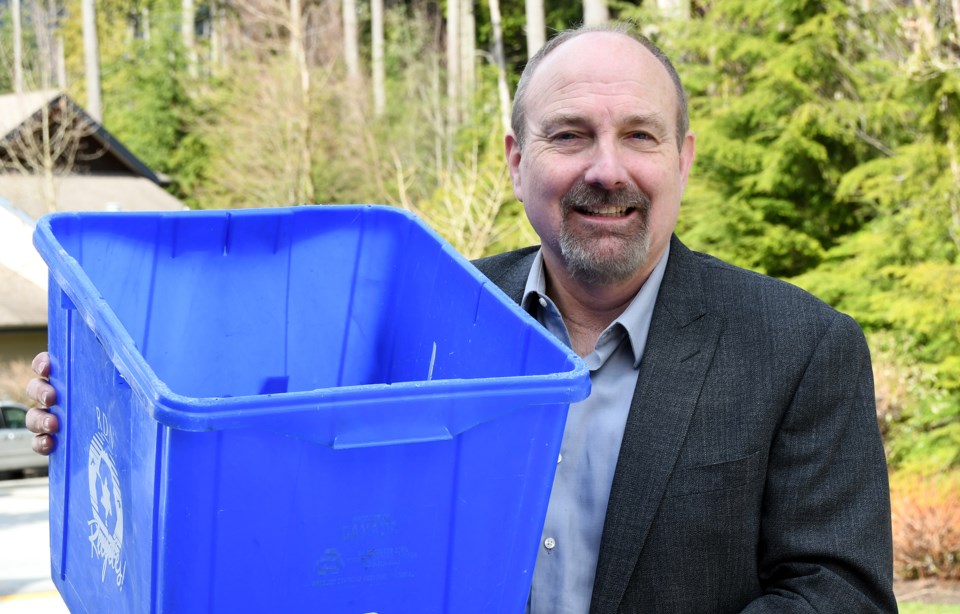The next time you’re out shopping, don’t just think about the product you’re about to buy.
Consider how it’s made and where the cardboard or plastic packaging around it will go.
And then ask yourself this: How will I reuse the packaging so that it won’t go into the landfill?
That question is also on the minds of the National Zero Waste Council, a group of municipal and industry leaders started a decade ago by Metro Vancouver, of which Coquitlam Coun. Craig Hodge is now chairperson.
Hodge, who is also vice-chair of Metro’s Zero Waste Committee, said the national group’s mandate is to go beyond recycling by eliminating waste in the first place.
To do this, Hodge said, the Council meets with companies to try to cut packaging at the source.
For example, instead of bread and meat being wrapped in plastic, businesses can use paper.
Companies can also use organic packaging like pellets that dissolve in water, he said.
But consumers have a responsibility, too: Clothes that have a hole don’t have to get tossed; they can be repaired and donated.
And food containers, like coffee cups, don’t have to be single use; rather, people can bring their own.
The change in behaviour, by the industry and consumer, harkens to the war rationing years.
“Grandma was the original recycler,” Hodge said, referring to a time when little went in the trash.
This month, the Council rang the alarm about the amount of food Canadians put in the can.
In its Food Waste Action Week, which ran from March 6 to 12, it highlighted the following facts:
- Canadian households toss $1,300 worth of edible food a year — about 4.5 meals a week
- Food waste adds up to 2.3 million tonnes a year in the landfill
- The most common foods dumped by weight are vegetables, fruit, cooked leftovers, breads, baked goods, dairy and eggs
Besides the packaging and food waste push, the national Council is tapping into other programs to lobby the federal, provincial and city governments for change.
This includes the Right to Repair, a movement that seeks to ensure manufacturers provide the tools, software and instruction manuals to fix items to their consumers.
Regionally, Metro has its Think Thrice campaign (Reduce, Repair, Reuse) that the Council promotes, giving consumers tips on caring for their clothes, as well as repurposing and even renting them out for special occasions.
In Coquitlam, where the landfill diversion rate is 72 per cent (versus 64 per cent regionally), Hodge said the city is doing its part by providing backyard composters for yard trimmings and food scraps, among other things.
He’s hoping for a Repair Café in the city soon, similar to what PoCo does monthly at its works yard.
Still, Coquitlam has its work cut out with unnecessary waste coming from multi-family units, where residents can hide their unwanted goods in black bags and big bins.
As well, Hodge said, he’d like to see the city give incentives to developers who relocate homes as he’s seen too many wrecking balls on well-built, older homes.
Hodge is also pushing for a lendable library where Coquitlam residents can borrow big items such as power tools, cooking pots and pans, and sewing machines.
That way, consumers don’t have to buy them for one or two small jobs and have them collect dust.
“We shouldn’t be creating waste in the first place,” Hodge said.



